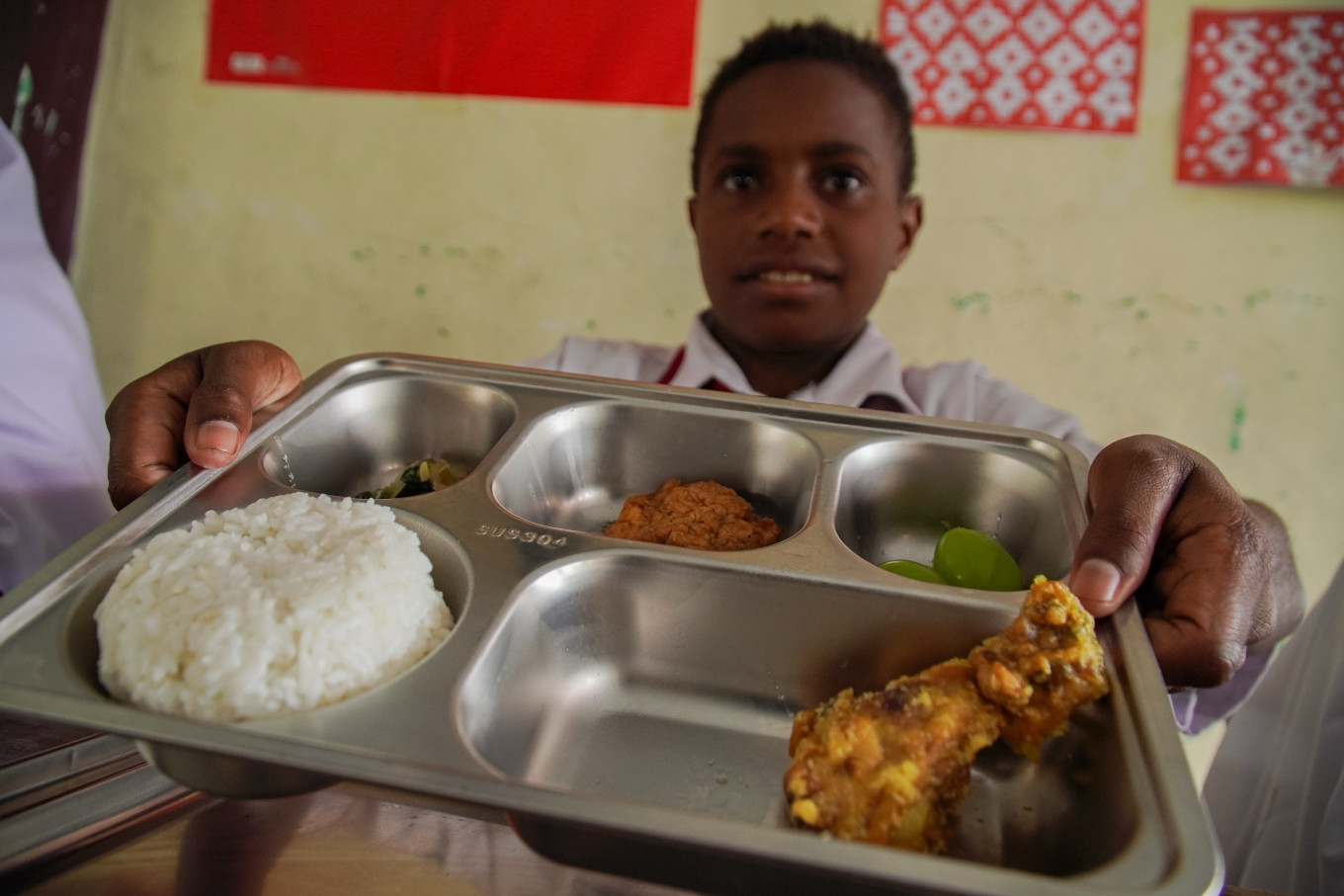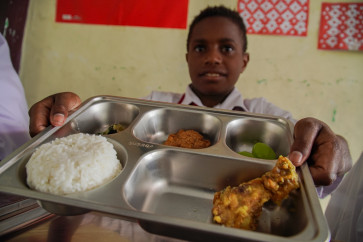Popular Reads
Top Results
Can't find what you're looking for?
View all search resultsPopular Reads
Top Results
Can't find what you're looking for?
View all search resultsMass food poisoning a momentum to overhaul MBG program
From a human rights perspective, the free nutritious meal program is part of the state's obligation to uphold people's right to food, rather than a charity activity.
Change text size
Gift Premium Articles
to Anyone
F
rom its inception, the Free Nutritious Meal (MBG) program drew warnings about potential problems. Its framework was conceptually flawed, often perceived simply as a charitable, top-down provision of free meals for children, rather than a state obligation.
Unsurprisingly, almost 10 months since its launch, the program, despite its noble objectives, has been plagued by various issues, including technical, funding, managerial and food quality failures, culminating in suspected mass food poisoning cases involving thousands of schoolchildren across nearly 16 provinces.
When these severe problems occurred, MBG implementers regrettably failed to acknowledge their mistakes and take corrective action. Instead, they became defensive. There were even reports that some beneficiaries were allegedly forced to sign forms agreeing not to sue the government in case of poisoning.
Upon arriving home from a week-long overseas visit on Saturday, President Prabowo Subianto ordered a comprehensive improvement of the MBG program, which is among the top priorities promised during his election campaign.
The President must seize this opportunity to restore the spirit of MBG as a realization of the state’s obligation to fulfill the right to healthy and quality food. As a fundamental human right, the MBG must be implemented in a participatory, transparent and accountable manner.
In the human rights framework, the relationship is clear: The state is the duty-bearer, and the people are the rights-holders.
The right to food is fundamental because it directly affects the realization of other essential rights, including the right to life, health, education and a child’s right to proper growth and development. This basic need is affirmed both in the 1945 Constitution (Article 28C) and internationally in the Universal Declaration of Human Rights (Article 25(1)) and the International Covenant on Economic, Social and Cultural Rights (Article 11(1)).



















